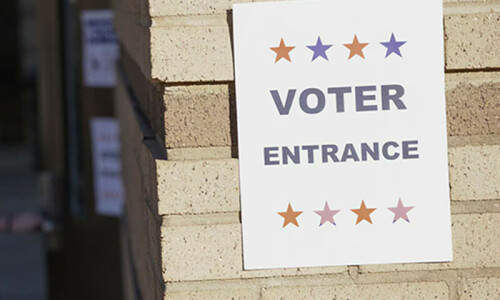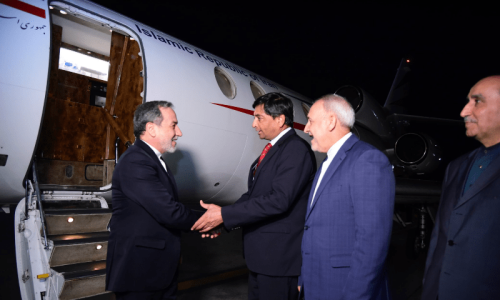NEW YORK: A top Afghan drug lord jailed in the United States since 2008 was for years on the US payroll as an informant for the CIA and Drug Enforcement Administration (DEA), The New York Times said Saturday.
Hajji Juma Khan was paid lavishly to provide information on the Taliban, Afghan corruption and other drug traffickers in his country, and was even brought secretly to the United States at one point, federal prosecutors, current and former US officials told the daily.
The US secret relationship with Khan, said the daily, illustrates how the war on drugs and the war on terrorism sometimes collide in Afghanistan, where drug traffickers, the government and the insurgency often overlap.
A small time drug peddler when the US-led invasion of Afghanistan was launched in 2001, Khan -- described as in his mid-50s -- grew to a major drug trafficker in the opening years of the foreign military campaign, as US forces focused on anti-insurgent and anti-terrorist forces in the country.
Over the years, Khan grew in influence, buying off the Taliban and corrupt Afghan government officials to protect his expanding drug trade until he became one of the country's biggest drug lords, the daily said.
At the same time, Khan became an informant for the CIA and the DEA, who were interested in Taliban and drug trafficking operations in the country respectively.
In 2006, he was brought to the United States to see if his role as an informant could be taken to a higher level, a former US official said.
He was not arrested because there were no charges pending against him in the United States, officials said, and during the visit Khan took a side trip to New York for some sightseeing and shopping.
Officials said it was unclear just how much intelligence Khan provided on other drug traffickers and the Taliban leadership, but his relationship continued for some time after that.
Everything changed in 2008, when anti-insurgency pressure eased somewhat and US forces shifted some of their attention to rampant drug trafficking in Afghanistan.
Some US officials said Khan had become too big a trafficker to be ignored, while others said he never provided breakthrough intelligence to his handlers.
Khan was lured to the United States in 2008 for another meeting with the DEA and even paid for his flight to Jakarta, where he was arrested instead and flown to the United States where he is now in plea negotiations with authorities.
He was arrested under a 2006 narco-terrorism law that makes it easier to go after foreign drug traffickers who are not smuggling into the United States, but who can be shown have ties to terrorist organizations, the Times said.
Khan's lawyer denied to the newspaper that his client ever supported the Taliban or worked for the CIA, while a CIA spokesman said the agency “does not, as a rule, comment on matters pending before US courts.” – AFP














































Dear visitor, the comments section is undergoing an overhaul and will return soon.